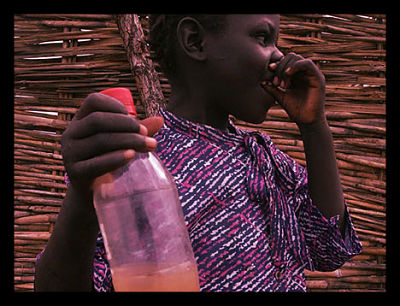5 Water Cooperation Facts for World Water Day

Friday, March 22, 2013 is World Water Day. This year’s World Water Day is especially important because the UN has designated 2013 the International Year of Water Cooperation. Those new to water rights issues may wonder: what is water cooperation? Why have a year dedicated to water cooperation? This post will address some of the most important points about international water cooperation.
According to UN-Water:
1. The International Year of Water Cooperation aims to: raise awareness of water cooperation, initiate innovative action toward water cooperation, foster dialogue about water as a top international priority, and address water-related development goals for beyond 2015, when the Millennium Development Goals expire.
2. Water cooperation is: cooperation between all parties involved in water management. If one party does not cooperate, efficiency of water management decreases, to the detriment of human lives. Water cooperation happens on local, national, and international levels. Vital water sources such as rivers and ground water extend across political boundaries; cooperation is needed to share these resources. Building a village well or pumping water for irrigation requires the cooperation of separate parties, often with conflicting interests.
3. Water cooperation is essential because: without water cooperation, progress is impossible in other areas of human development such as food security, gender equality, and poverty reduction. Improving water access is key to reducing poverty, especially for women and children. Water cooperation creates economic benefits, and is necessary for preserving and protecting the natural environment. Life on earth depends on water; we are responsible for managing it sustainably and effectively.
4. Challenges to water cooperation are: reaching across social, political, and economic boundaries. Those involved in water management and policy-making must work with a broad range of stakeholders, local residents, governments, and NGOs. In these situations, cooperation and cultural understanding are essential for effective communication and decision-making. Water cooperation is further complicated by the increasing water needs of a growing population. Urbanization, pollution and climate change continue to threaten water resources, placing them under even greater pressure.
5. There are endless ways you can get involved with water cooperation efforts: educate yourself and others about water rights, impediments to water access, and water cooperation efforts. Engage others in your community to advocate for sustainable water management. Click here for more about how to get involved in World Water Day and the International Year of Water Cooperation!
– Kat Henrichs
Source: UN-Water
Photo:Tree Hugger
